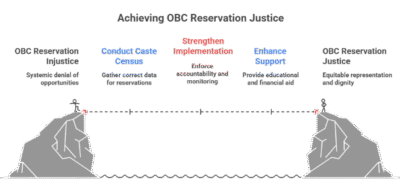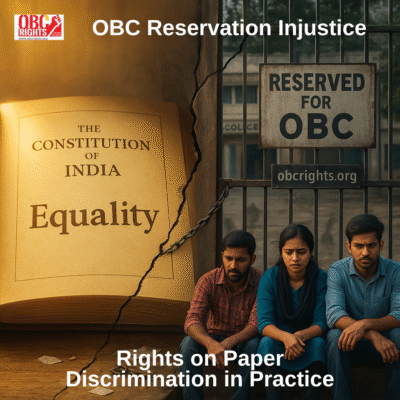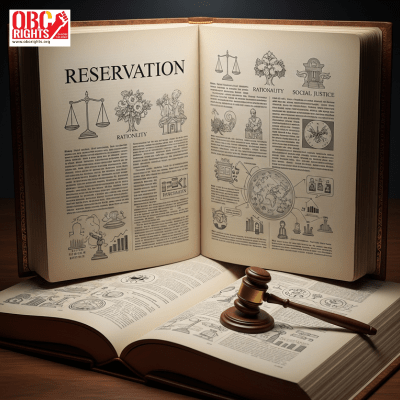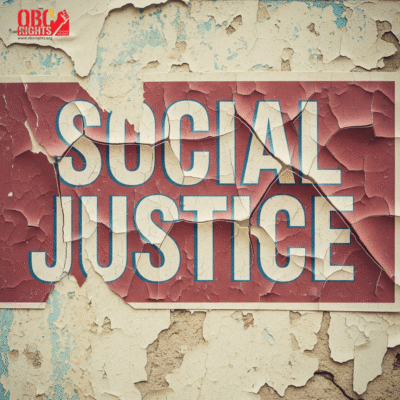The Constitution of India guarantees equality, yet millions from the Other Backward Classes (OBC) still face systemic denial of opportunities. Denial of OBC reservation is not just a legal issue—it’s a lived experience that highlights the deep gaps between policy and practice. While reservation quotas exist on paper, their real implementation often falls short, leaving deserving individuals deprived.
A Broken Promise: How the System Fails
Affirmative action for OBCs was introduced to ensure social mobility and equitable representation. Despite this, key sectors like education, employment, and politics still reflect a sharp under-representation of OBC individuals. Courts and governments frequently cite procedural lapses or technical grounds to dilute these benefits. The administration has no real involvement or commitment in implementing affirmative action.
In states like Maharashtra, Bihar, and Tamil Nadu, OBC quotas have faced repeated legal hurdles. Often, these communities are forced to prove their backwardness repeatedly—while elite castes find ways to bypass systems meant to uplift the disadvantaged. The result is growing frustration among youth and activists who see the OBC reservation injustice as a deliberate denial of dignity and rights.
The Legal Battles Around OBC Reservation:
Policy vs Practice: Why the Ground Reality Differs
Judicial interventions have played a crucial role in the dilution of OBC quotas. Recent judgments in local body elections and university admissions have struck down OBC reservations, citing a lack of “adequate empirical data.” This reasoning overlooks decades of socioeconomic data pointing to persistent caste-based disadvantages.
Moreover, the delay in conducting a caste census prevents proper implementation of proportionate reservations. Without current statistics, the OBC population remains undercounted and underrepresented.

System Failures That Block OBC Rights
Even though OBC reservation policies exist, they often don’t work properly. This is mostly because of government delays, too much hesitation, and a lack of real interest from those in power.
For example, many OBC seats in central universities are still empty. Officials say there aren’t enough qualified candidates, but in truth, the selection process is unfair and not inclusive. These problems are not by accident—they show how the system continues to ignore OBC communities. Most of the Elite / Central Universities fikter OBC Students by invoking a concept 0 filter called “Not Found Suitable (NFS)”.

The Way Forward: What Needs to Change
For real change, India must conduct a nationwide caste census and establish legally sound mechanisms to ensure data-backed reservations. Monitoring bodies, independent of political influence, are necessary to enforce accountability in implementation.
Educational outreach, financial support, and proportional political representation must also be strengthened. Above all, society must recognize that equity is not a favor—it’s a right.
Conclusion
OBC reservation injustice is not a theoretical debate. It is the reality of millions striving for fairness in a system that promises equality but delivers discrimination. Bridging the gap between written rights and real justice will require persistent effort, political courage, and public awareness. The fight isn’t just for representation—it’s for dignity, inclusion, and a future where no one is left behind.
For millions of OBCs, “Social Justice” is still a dream. It’s time to turn words into action.



